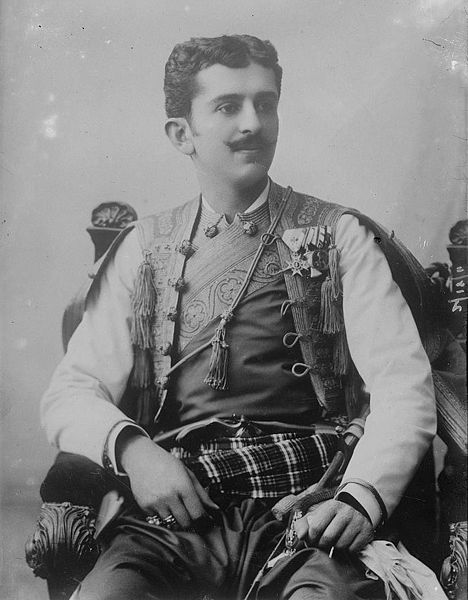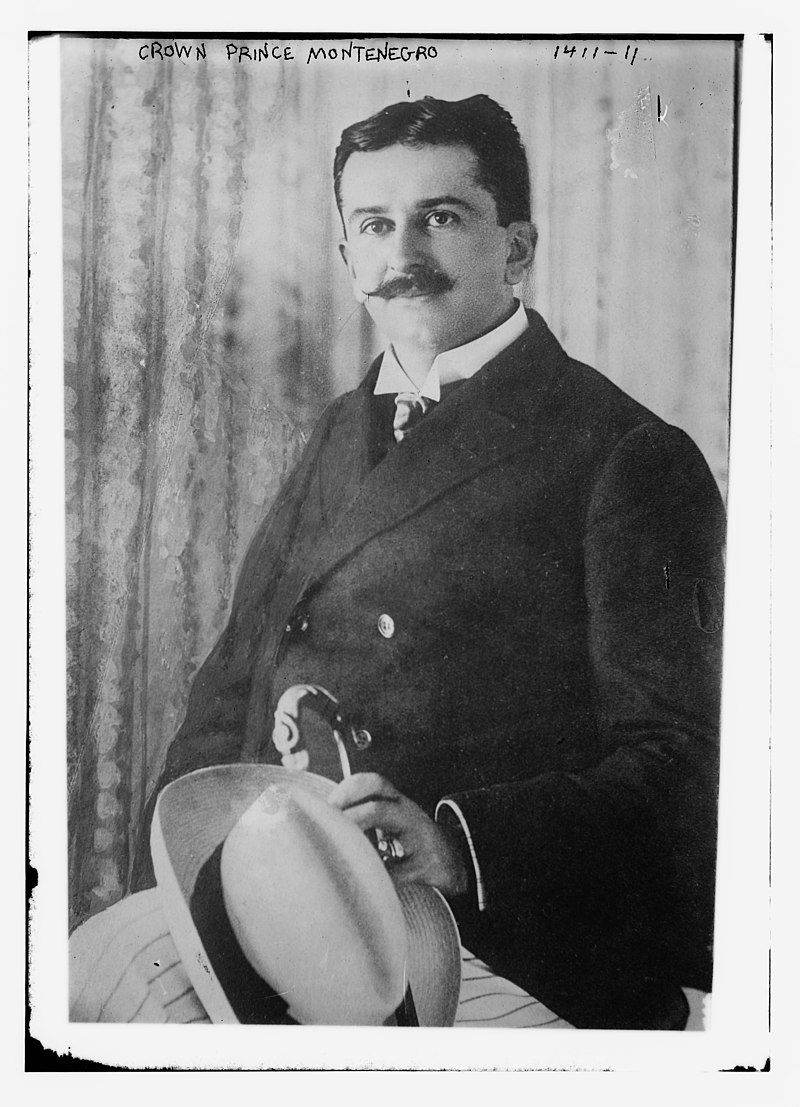<Back to Index>
- Crown Prince of Montenegro Danilo Aleksandar Petrović - Njegoš, 1871
PAGE SPONSOR


Danilo Aleksandar Petrović - Njegoš (29 June 1871 - 24 September 1939) was the Crown Prince of Montenegro. He was the eldest son of King Nicholas I of Montenegro and Queen Milena Vukotić.
During the Balkan Wars and World War I he led the Montenegrin Army with his father (the King), Janko Vukotić, and Mitar Martinović. On 1 March 1921 Danilo was proclaimed King of Montenegro and became head of the government - in - exile until 7 March 1921 when, for reasons that are still unclear, Danilo abdicated his royal claims and headship of the royal house in favor of his nephew, Prince Michael of Montenegro. His reputation was undermined by announcing his abdication on 5 March only to publicly retract this the following day, before re-affirming it the day after that. His decision was met with much dismay among the Montenegrin expatriate community.
Prince Danilo was married to Duchess Jutta of Mecklenburg (1880 - 1946) the daughter of Adolf Friedrich V, Grand Duke of Mecklenburg - Strelitz, but the marriage was childless. After he abdicated in 1921, he spent most of his life living in Nice.
Prince Danilo resurfaced in 1934 when he sued Metro - Goldwyn - Mayer for libel and collected $4,000 in a Paris court for the false depiction of him in the first version of the film The Merry Widow. In the film "Prince Danilo of Montenegro" seduces a commoner and then rejects her because it could impoverish the royal treasury. He then regrets his actions and tries to win her back but fails to convince her of his true love. The film bears no relation to reality. The film was re-shot and, in addition to demoting the Prince to a Captain, they were careful to change the date of the action from 1905 to 1885, when the real Prince was a young boy.
Danilo died in Vienna (which had recently been annexed by Nazi Germany) in 1939 without issue.
Danilo is famous as a one-time composer, composing the music for the Serb patriotic song of his predecessor King Nikola Onamo, 'namo!, which he published in Prague.